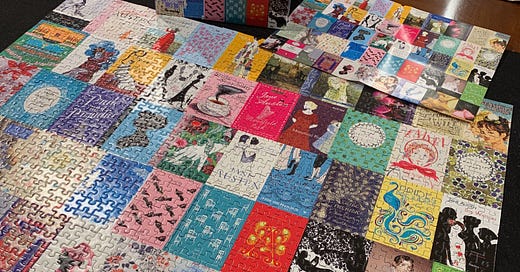There are so many books in the world. The sad truth is that no one can read all of them. If you live for 50 more years and read 50 books a year, that’s only 2500 more books. And frankly, for many of us, those are both fairly optimistic assumptions!
So, given that 2500 isn’t a big number, it might seem silly to re-read a book. But I’d argue that there can be a lot of pleasure and insight gained from re-reading something that’s worth reading. You are a different person than you used to be. A text might be the same, but you can see different things. All this can make re-reading almost like reading fresh. But since you know you liked the book the first time, it’s highly likely not to be a waste of time.
Seeing with new eyes
I certainly had this experience a few years ago when I decided to read all the works of Shakespeare. I’d read or seen performances of several works before. Like many high schoolers, I was forced to read Romeo and Juliet for English class. At the time, I was drawn to the drama of these romantic, love-struck teenagers. Now, as a mother of kids that age, I found myself rolling my eyes at how silly and hot-headed Shakespeare’s hero and heroine act. The tale is tragic to be sure, but some of it reads like farce — which is something I didn’t see so much before.
In a completely different genre, I recently re-read The 7 Habits of Highly Effective People. I remember reading Stephen Covey’s classic self-help book many years ago, before I had kids. I thought it was good, and I got some practical ideas about planning and such from it. Reading it now, I’m fascinated to see how much his experience with his nine kids permeates his writing. His was a very traditional family, and I know his wife managed much of the household work, and yet the needs and joys of small kids are there in his time in a way that many other authors just don’t acknowledge. How do we accomplish big things in the world while managing our relationships with multiple young people? It’s a good question and it’s certainly one I care about more now with a house full of young people myself.
Sometimes we just revisit works to revisit good prose. I recently re-read Pilgrim at Tinker Creek to be reminded of how Annie Dillard captures the wildness of the natural world. I re-read Virginia Woolf’s To The Lighthouse every few years because it is just the most perfect novel. It is everything about humanity’s weakness and possibility in 200 pages.
Being choosy
Now to be sure, not every book stands up to revisiting. I’ve decided not to revisit a few books I read in childhood because I’m pretty sure they won’t be as good as I remember them being. Best to keep the happy memory rather than see the flaws.
But many books do stand the test of time. If you’ve found yourself in a reading rut recently, or even if you haven’t but you’re struggling with the question of what to read next, try revisiting a familiar book. If it’s been a while, there may be things you’ve forgotten that will be interesting. Maybe you didn’t see something the first time through. Or maybe you’ll approach the story in a different way now that you are a different person. Good literature can stand up to all of this. And you’ll have a great reading experience.



